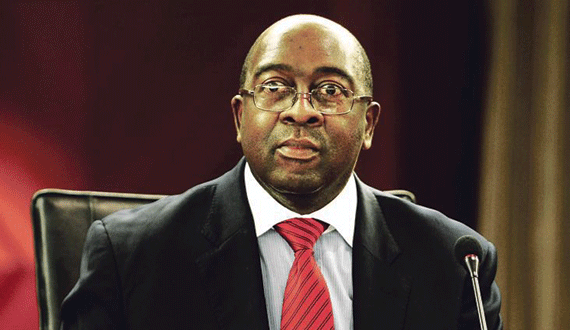
JOHANNESBURG — South Africa Finance minister Nhlanhla Nene said the government is concerned about significant weakness in the rand, although its effect on the country is for now limited given lower international oil prices.
Nene spoke in an interview on the sidelines of the World Bank-International Monetary Fund (IMF) annual meetings in Washington on Thursday.
“What we are concerned about is that the swing has slightly been a bit too fast,” he said. “We were fortunate that one of our major imports, which is oil, has actually stayed at reasonably low levels.”
The rand has come under extreme volatility over the past few weeks amid dollar strength. Market speculation over when the United States Federal Reserve will raise interest rates is also weighing on emerging-market currencies.
US Fed vice-chairman Stanley Fischer told delegates at a session at the meetings that although there was no set period for when rates would be increased, for now and given current economic indicators, capital markets were “more or less right” in speculating that rates could go up in the second half of 2015.
Fischer said that the decision to increase rates would be data-dependent and that the rate hikes would happen “relatively slowly”.
Markets are pricing in an interest-rate increase in the US in the second half of next year. The concern is that once rates start rising in the US, money invested in emerging markets such as SA will be moved to the US, which would cause the rand to weaken.
Speaking on the economy, Nene said while the South African government agreed that SA’s economic growth number would be lower than the 2,7% forecast in February, they did not share the IMF’s view that it would be as low as 1,4%.
- Chamisa under fire over US$120K donation
- Mavhunga puts DeMbare into Chibuku quarterfinals
- Pension funds bet on Cabora Bassa oilfields
- Councils defy govt fire tender directive
Keep Reading
The IMF last week revised down SA’s economic growth forecast for this year to 1,4% from 1,7% previously.
“Without accepting the 1,4% as the accurate number, the fact of the matter is that we are looking at a much more reduced gross domestic product number,” he said.
The minister will reveal downwardly revised economic growth forecasts in the medium-term budget policy statement later this month.
— BD Live










